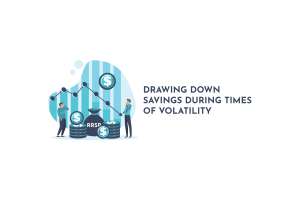Recently there has been big news stories about significant issues that arose within a couple of banks in the US and Europe. Perhaps the biggest story was the collapse of Silicon Valley Bank in the U.S., let’s look at potential reasons that this happened and what it means for Canadians and the banking system here.
In This Article:
- Understanding Fixed Income Investing
- How did this influence what happened at Silicon Valley Bank (SVB)?
- How does this affect Canada?
Understanding Fixed Income Investing
First, a 10,000 foot view primer on fixed income investing (hold to maturity investments). When you buy a bond or fixed income investment there are two things that matter, the interest rate at the time of purchase and the duration (how long until it matures). We will use a $1000 bond purchase in our example with a 4% interest rate that matures in 5 years. What this means is that every year the bond owner receives $40 in payments from interest and at the end of the 5 years you receive your initial investment of $1000 back. So, what happens in 2 years when you need to sell that bond on the secondary market because you need cash? If interest rates have gone up since you bought your bond when you go to sell it, you must discount the price to attract a buyer. Why would I pay you full price for the remaining duration of your 4% bond if I could buy a new one that pays 6.5% today? The reason is that you drop the price enough that the 4% interest rate and the $1000 back in a few years becomes attractive to me. When interest rates rise rapidly the value of bonds people are looking to (or needing to) sell on the secondary market drops quickly.
How did this influence what happened at Silicon Valley Bank (SVB)?
SVB was a huge banking figure in the tech industry. When tech firms that used the bank raised money from investors much of that money landed in SVB deposits. In the U.S. amounts up to $250,000 are insured by deposit insurance. Stats show that in excess of 93% of SVB’s clients held more than that amount on deposit. At the same time the amount invested at SVB rose from $65 billion in 2019 to $189 billion in 2021. So, what led to the downfall of SVB? SVB held just over 94% of it’s deposits in hold to maturity investments. When governments were forced to rapidly raise interest rates to combat widespread inflation SVB’s assets became less valuable while their liabilities remained unchanged. This is never a good thing for your balance sheet. This led to a panic from people who had their money held at SVB, particularly those with amounts on deposit that exceeded the FDIC max of $250,000. These people rushed to withdraw their money from the bank all at once. When panic set in SVB was forced into a situation where they were required to begin to liquidate their holdings, those same holdings that were worth significantly less than when they were purchased because of the rapidly rising interest rates. SVB didn’t have enough liquidity to pay the rush for withdrawals and ran out of capital and regulators shut them down.

How does this affect Canada?
First off, SVB didn’t hold deposits as an institution in Canada. They were a lender that invested in Canadian tech companies. If you are a tech company entrepreneur in Canada you may be worried that this may make acquiring investors and funding more difficult in what is traditionally a volatile sector. Canadian banking regulators want people to know that this was a unique set of circumstances that led to SVB collapsing and that there are different rules and regulations in Canada related to how much liquidity Canadian banks need to keep on hand. None of Canada’s 6 major banks focus on one area of the economy as heavily as SVB was with the tech sector so they have less risk associated with one sector of the economy tanking. The immediate effect of the SVB collapse on Canadians is that if you run a tech start up and were looking to raise capital your job just became more difficult. There was also some pull back on bank stock values in Canada immediately after the SVB situation arose, but that has less to do with the fundamentals of the banks here and more to do with skittish investors worrying about the immediate effects of the collapse. Overall industry experts agree, although it is often considered boring, our well-regulated, stable Canadian banking system is set to weather the storm of the collapse of Silicon Valley Bank. If you still have questions please reach out to us.






































